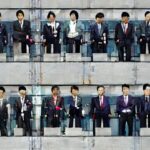ビジネス
東京海上が社員の強制的転勤を終了へ【Tokio Marine to end forced employee transfers】
Tokio Marine & Nichido Fire Insurance will no longer decide on intra-company transfers without employees’ consent by 2026, in an attempt to improve job satisfaction and recruit younger talent. The new rule will apply to its 6,000 Global Course employees.
ローソンが販売期限切れ品を寄贈【Lawson pilot program tackles food loss, childhood poverty】
A Tokyo branch of the national convenience store chain Lawson is donating food that is past its sell-by time to a cafeteria that serves children from needy families. This addresses the issues of food loss and children going hungry due to poverty.
消費者庁がステマ広告を規制へ【Consumer Affairs Agency aims to regulate “stealth marketing”】
Recently, advertisers are more frequently hiding their identities by disguising ads as “personal recommendations” for products or services on social media platforms and elsewhere. The Consumer Affairs Agency released a report calling for regulations, including clear labeling of ads so as not to deceive consumers.
回転寿司チェーン社長が企業スパイで起訴【Revolving sushi chain president accused of corporate espionage】
The president of the operator of Kappa Sushi, the smallest of Japan’s “big four” conveyor-belt sushi chains, was arrested on suspicion of stealing data from a rival, Hama-sushi operator Zensho Holdings. He is a former executive at the latter company, and is accused of copying trade secrets such as wholesale seafood prices.
KDDI が顧客にサービス停止の補償【KDDI to compensate customers for service outage】
The operator of the mobile carrier “au” will cut millions of customers’ bills to make up for disrupted service last month. Besides the inconvenience of being unable to communicate or receive data, the disruption meant users could not make emergency calls, prompting discussion of technical changes to address such situations.
4分の1の日本企業が従業員の70歳までの就業を可能に【One quarter of firms in Japan let employees work until 70】
After a 2021 amendment, the Elderly Employment Stabilization Law calls on companies to make efforts to employ workers until age 70, with the goal of shoring up Japan’s dwindling workforce. Efforts are only mandatory until age 65, but 25 percent of employers are complying by re-employing retirees or abolishing retirement ages.











